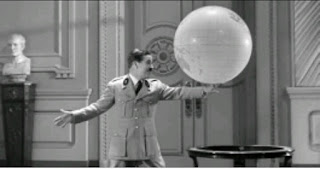Robert Frost, American poet. He is mostly admired for his depiction of rural life. He was poet laureate and also won Bollingen prize and Pulitzer prize. Frost wrote “Stopping by Woods On a Snowy Evening” in 1922 and published in 1923. In a letter to Louis Untermeyer ( American poet, critic, editor), Frost called this poem, “my best bid for remembrance.” Here I’m trying to give my interpretation of his poem, “Stopping by Woods On a Snowy Evening”.
Poem
Whose woods these are I think I know.His house is in the village, though;
He will not see me stopping here
To watch his woods fill up with snow.
My little horse must think it queer
To stop without a farmhouse near
Between the woods and frozen lake
The darkest evening of the year.
He gives his harness bells a shake
To ask if there is some mistake.
The only other sound's the sweep
Of easy wind and downy flake.
The woods are lovely, dark and deep,
But I have promises to keep,
And miles to go before I sleep,
And miles to go before I sleep.
My Interpretation Of Poem
This poem starts by showing someone’s property. The poetic persona has stopped by woods and he says that he knows whose woods are these. The owner of woods is living in village. Then he says that he can’t see me stopping here and to see his woods are fill up with snow. These lines as per my thinking he seems to say that in this snowy evening I’m here travelling and the owner of the woods is resting in his house and that is why he can’t see that his woods are filled up with snow.
In second stanza he refers to his horse as “My little horse” as if he loves his horse. Be says that his horse might think it strange to stop here because there is no farmhouse where they can rest. Then he says “between the woods and frozen lake, darkest evening of the year”. If we imagine the situation poetic persona talking about it seems gothic. But as he stops there may be can say that he like nature’s dark side also. He find this gothic scene also beautiful and that is why he stops there.
In third stanza as animals have stronger sixth sense, he finds the weather and surrounding strange and he shake his harness bell to ask his rider if he stops here by any mistake. It seems horse and his rider are having conversation with each other. Then poetic persona refers to sound of wind and snow fall. It is again horrific sounds but it also signifies the peace in which poetic persona is standing. May be he stops there to feel this peace and silence.
In fourth stanza poet has put metaphors for woods lovely, dark and deep. We can see binary oppositions in metaphors. We may also can say that poetic persona finds dark and deep woods lovely. He stops there for a while may be to enjoy dark side of nature or for silence or may be as he refers in his first stanza about someone who can’t see these woods because he is in his house resting, it may can be poetic persona also have a temporary thought of going back to home and resting but after sometime he realize and says that “I have promises to keep” these promises may can be to others or to himself which he wants to fulfill. Then in last he repeats his lines “Miles to go before I sleep”. It also can be only for that night which has to travel or it can have deeper meaning as life and to take long journey of life and sleep can be death. So may be he wants to suggest the long journey of life which he has to complete before his death.
As per famous quote of Robert Frost that, "In three words I can sum up everything I've learned about life: It goes on" this poem also proves this quote by ending this poem with lines like “miles to go before I sleep”. Stopping by woods is momentary pause but after all the life goes on.
Thank you.


















